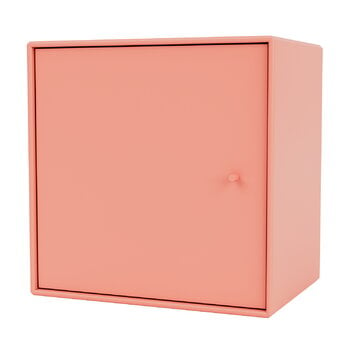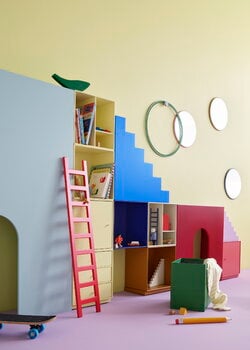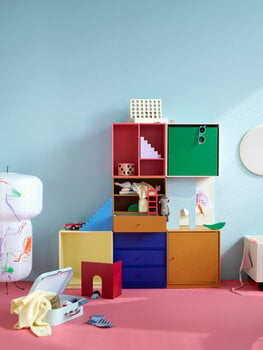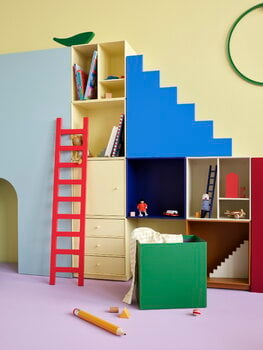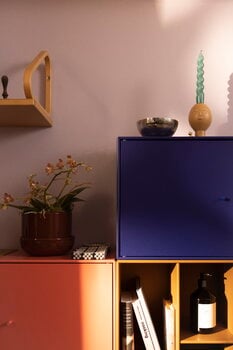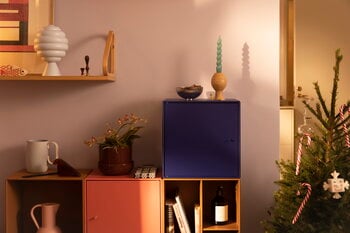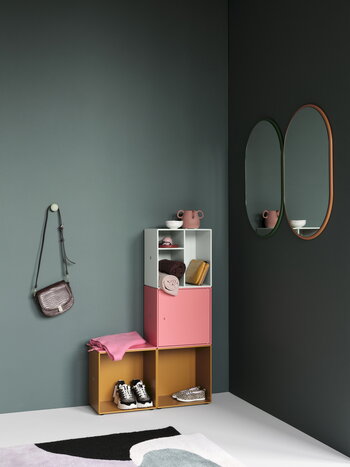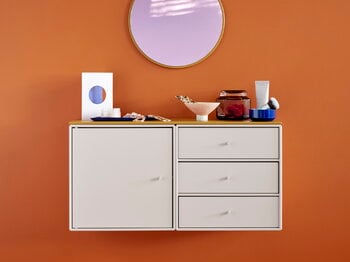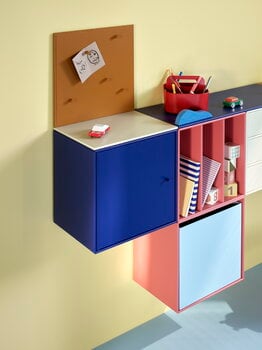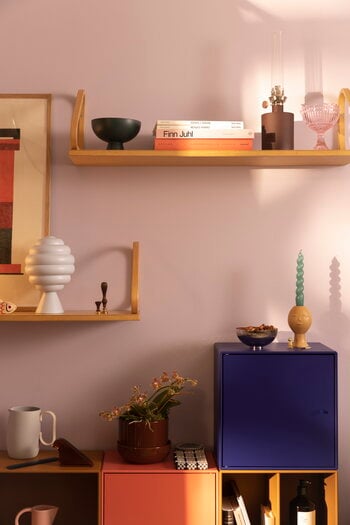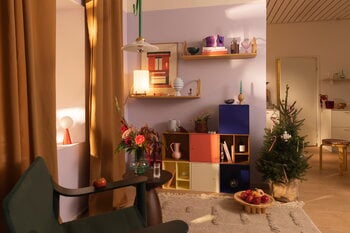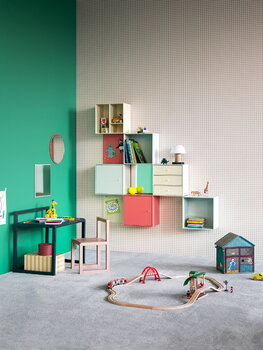The Montana Mini module with door is a simple yet extremely multifunctional storage module that can be mounted on the wall or placed on the floor, either individually or in groups. The module is mounted on the wall by hanging it on the included suspension rail with small spacers – this way, you can easily rearrange the modules without any tools and adjust them by rotating the spacers. All corners of the module have pre-drilled holes, allowing you to mount it any way you like. Included are also anti-slip patches for stacking the modules on top of each other.
Made of thin, 8 mm MDF, the Montana Mini modules are perfect for displaying books, glassware or your favourite objects. The Montana products were created by Peter J. Lassen, and all the items have been designed and manufactured in Denmark.
